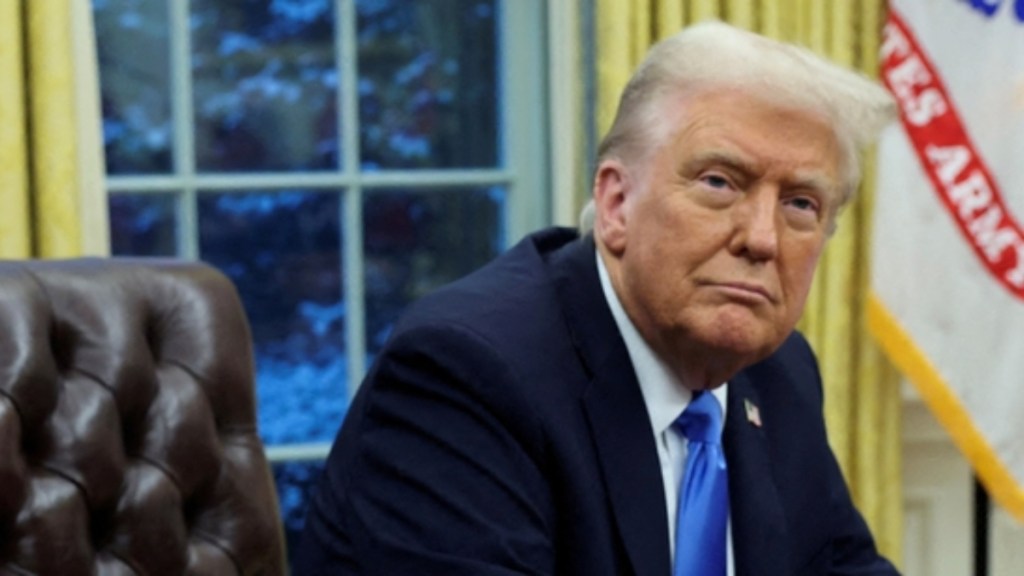US President Donald Trump has sparked controversy by labeling Ukrainian President Volodymyr Zelensky a ‘dictator without elections,’ escalating the already tense relationship between the US and Ukraine. This latest criticism from Trump has raised questions about the future of US support for Ukraine in its war with Russia.
Trump’s remarks, posted on his Truth Social platform, were a direct attack on Zelensky’s leadership, particularly in light of the ongoing conflict. “A dictator without elections, Zelenskyy better move fast or he is not going to have a country left,” Trump wrote, challenging Zelensky’s legitimacy as a democratically elected leader.
However, Zelensky was elected in 2019, and his administration, like many wartime governments, has had to suspend elections due to the ongoing war with Russia.
These comments mark a significant shift in Trump’s approach to the conflict, as he has previously been critical of US involvement in Ukraine. Trump has repeatedly argued that the war, which began with Russia’s invasion in 2022, could be resolved fast under his leadership. And, he has expressed confidence that only he could broker peace with Russian President Vladimir Putin, suggesting that current efforts are insufficient. “In the meantime, we are successfully negotiating an end to the War with Russia, something all admit only ‘TRUMP’ and the Trump Administration can do,” Trump asserted in a follow-up post.
Zelensky’s Response
In response to Trump’s attack, Zelensky rejected the accusations, framing them as part of a larger campaign of Russian disinformation. The Ukrainian leader stated that his leadership remains strong, pointing to the trust Ukrainians have shown him despite the war’s devastating toll. According to reports in the public domain, Zelensky has also rejected Trump’s attempts to access Ukraine’s rare minerals, stating no security guarantees were offered in exchange.
Europe Reacts
European leaders were quick to criticize Trump’s comments and have announced more sanctions against Russia.
German Chancellor Olaf Scholz rejected the notion that Zelensky should be considered a dictator, noting that it is common in wartime for elections to be postponed. Similarly, UK Prime Minister Keir Starmer reaffirmed Zelensky’s legitimacy, calling the idea of him being a dictator ‘wrong and dangerous.’
The support from European officials highlights the broader international consensus on Ukraine’s sovereignty and the legitimacy of its leadership.
Trump’s statements have raised further concerns about the future of US support for Ukraine, which has relied on military aid and diplomatic backing from Washington. Trump’s position, particularly his suggestion that the war in Ukraine should be negotiated directly with Russia, differs from the current administration’s stance, which has continued to support Ukraine’s defence efforts.
While Trump’s remarks were seen by many as an attack on Zelensky personally, they also reflect his broader skepticism about US involvement in international conflicts.
Critics argue that Trump’s dismissal of Zelensky’s leadership, plays into Russia’s narrative, potentially undermining support for Ukraine’s fight against Russian aggression.
The war of words between the former US president and the Ukrainian leader underscores the growing divisions over how to approach the ongoing conflict. As Zelensky continues to seek international support, including from the US and NATO, Trump’s comments have cast doubt on the future of US-Ukraine relations, with the next presidential election set to further shape the trajectory of American foreign policy.

